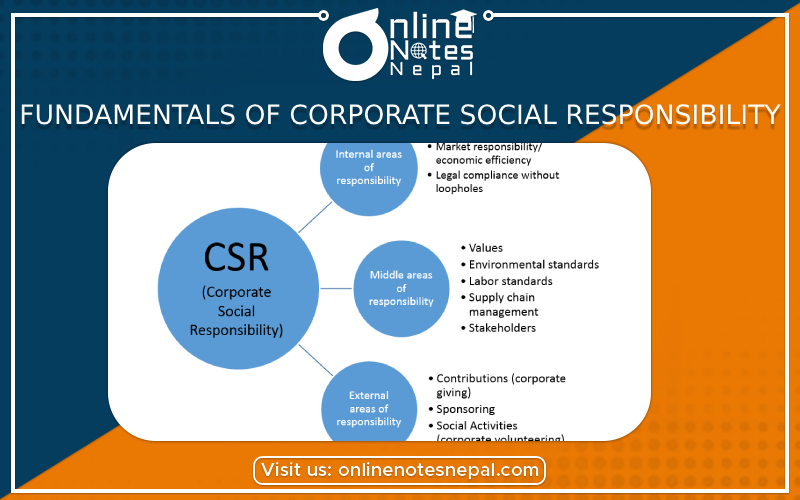Published by: Anu Poudeli
Published date: 17 Jul 2023

Corporate Social Responsibility (CSR) refers to a company's commitment to conducting business in an ethical and socially responsible manner that positively impacts society and the environment. It goes beyond profit-making and takes into account the company's impact on stakeholders, such as employees, customers, communities, and the environment.
Here are some key fundamentals of corporate social responsibility:
Stakeholder Engagement:
CSR involves actively engaging with stakeholders to understand their concerns, needs, and expectations. This includes employees, customers, suppliers, investors, local communities, and NGOs. By involving stakeholders, a company can identify relevant social and environmental issues and work towards addressing them effectively.
Ethical Business Practices:
Ethical behavior is a fundamental aspect of CSR. It includes ensuring fair treatment of employees, avoiding corruption, maintaining transparency in business operations, and complying with relevant laws and regulations.
Environmental Sustainability:
Corporate Social Responsibility (CSR) comprises lowering the company's environmental impact and supporting sustainable practices. This includes lowering greenhouse gas emissions, conserving natural resources, reducing waste output, and switching to renewable energy sources.
Corporate Philanthropy:
Corporate philanthropy is one of the most prominent components of CSR, and it include donating money, resources, or time to various philanthropic organizations and community development efforts. This can include assistance with education, healthcare, poverty alleviation, and disaster relief.
Responsible Supply Chain Management:
Companies who practice CSR extend their responsibilities to their supply chain. They seek to ensure that their suppliers follow ethical and environmental standards, as well as to promote fair labor practices and sustainable sourcing.
Employee Well-Being:
Companies that value CSR also invest in their employees' well-being. This includes providing a safe and healthy work environment, paying a fair wage, fostering diversity and inclusion, and assisting employees in their professional development and work-life balance.
Transparency and reporting:
Transparent communication is essential for CSR projects. Companies should report on their social and environmental performance, progress toward CSR goals, and difficulties they confront on a regular basis. This fosters trust among stakeholders and allows them to hold the organization accountable.
Long-term Sustainability:
CSR is a long-term commitment, not a short-term strategy. It takes time to develop and see benefits from sustainable practices and good impacts. To achieve long-term benefits for society and the environment, businesses must include CSR into their fundamental business plans.
Impact Assessment:
Understanding the efficacy of CSR programs and identifying opportunities for improvement requires measuring their impact. Companies examine their social, environmental, and economic consequences using a variety of indicators and methodologies.
Collaboration and Partnerships:
To address complex social and environmental concerns, businesses frequently partner with other firms, governments, non-governmental organizations (NGOs), and communities. These collaborations have the potential to expand the scope and efficacy of CSR programs.
To summarize, corporate social responsibility is more than just compassion; it is a strategic approach that benefits businesses, stakeholders, and society as a whole. Businesses that embrace CSR can help to create positive social and environmental impact while also developing a stronger, more sustainable future.